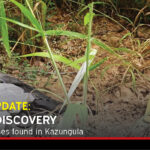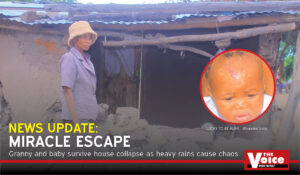Climate change has been singled out as one of the biggest challenges for Botswana today and in the foreseeable future.
For a country with an arid to semi arid climate and an erratic rainfall, Botswana is considered highly vulnerable to climate variability and change due to its high dependence on rain-fed
agriculture and natural resources.
This was noted by the Minister of Labour and Home Affairs, Anna Mokgethi in Maun this past Saturday during commemoration of World Day for Safety and Health at Work.
Mokgethi said extreme weather events and natural disasters influenced by climate change do not only affect farmers but every citizen including front runners in health departments and the country’s economy.
She said the windstorms, relentless droughts, scorching heatwaves to torrential downpours are becoming more frequent and intense, with profound and far-reaching impacts.
“But it is not just about the damage to property and the environment. It is also about the risks posed to outdoor workers and emergency responders who brave these conditions to keep us safe,” she said.
Mokgethi called on employers and the general public not to forget about the mental toll it takes on workers forced to navigate these harsh climate conditions day in and day out to serve the nation and to save lives.
Botswana has of recent been experiencing draught and unprecedented heat waves among other climate change effects, which meant only a few farmers were able to till the land.
This in fact prompted government to declare 2024 a drought year.
There’s concern that this could lead to high levels of poverty particularly in rural areas.
The challenges mainly centered around water resource availability means communities are now vulnerable to food insecurity and unstable livelihoods as well as unsustainable agroecological systems and crop failure.
Mokgethi admits the effects that ring throughout the country undermines the government efforts towards food security and threatens the well being of communities, “Climate change is the most defining challenge of our era and for generations to come. It is described by the World Health Organisation (WHO) in its CP24 Special report as “The greatest health challenge of the 21st century,” as it poses complex, significant threats to life, health and well-being on a global scale. It is changing the nature of diseases, how they spread, when they occur and contaminating the food chain ecosystem. It is making extreme weather worse.”
The situation according to her underscores a fundamental truth that the health and prosperity of the people is inseparably linked to the health of their environment.
“In this regard we also in Botswana are transitioning to renewable sources of energy such as solar and wind power, reducing our reliance of fossil fuels that contribute to greenhouse gas emissions. Moreover recycling has become a cornerstone of our waste management practices, mitigating the environmental harm caused by excessive consumption and the depletion of limited resources.”
Mokgethi’s message was that by raising awareness, promoting education and investing in solutions the country can mitigate the impact of climate change on occupational health and safety, “Together we can build a safer and more resilient future for all workers, regardless of the challenges posed by our changing environment. Let’s commit to the course today for the sake of our workers, our communities and our planet.”













The Hon Minister has pointed out the gravest threat(s) to Botswana. There are many solutions that can be implemented immediately to conserve the water , electricty and minimise waste, from food peels and wet waste, to pourng only as much water as will be drunk; There are many measures and policies already implemnted by other countries that must be adopted in Botswana.Products that can mitigate disaster/climate change can become industries employing the young